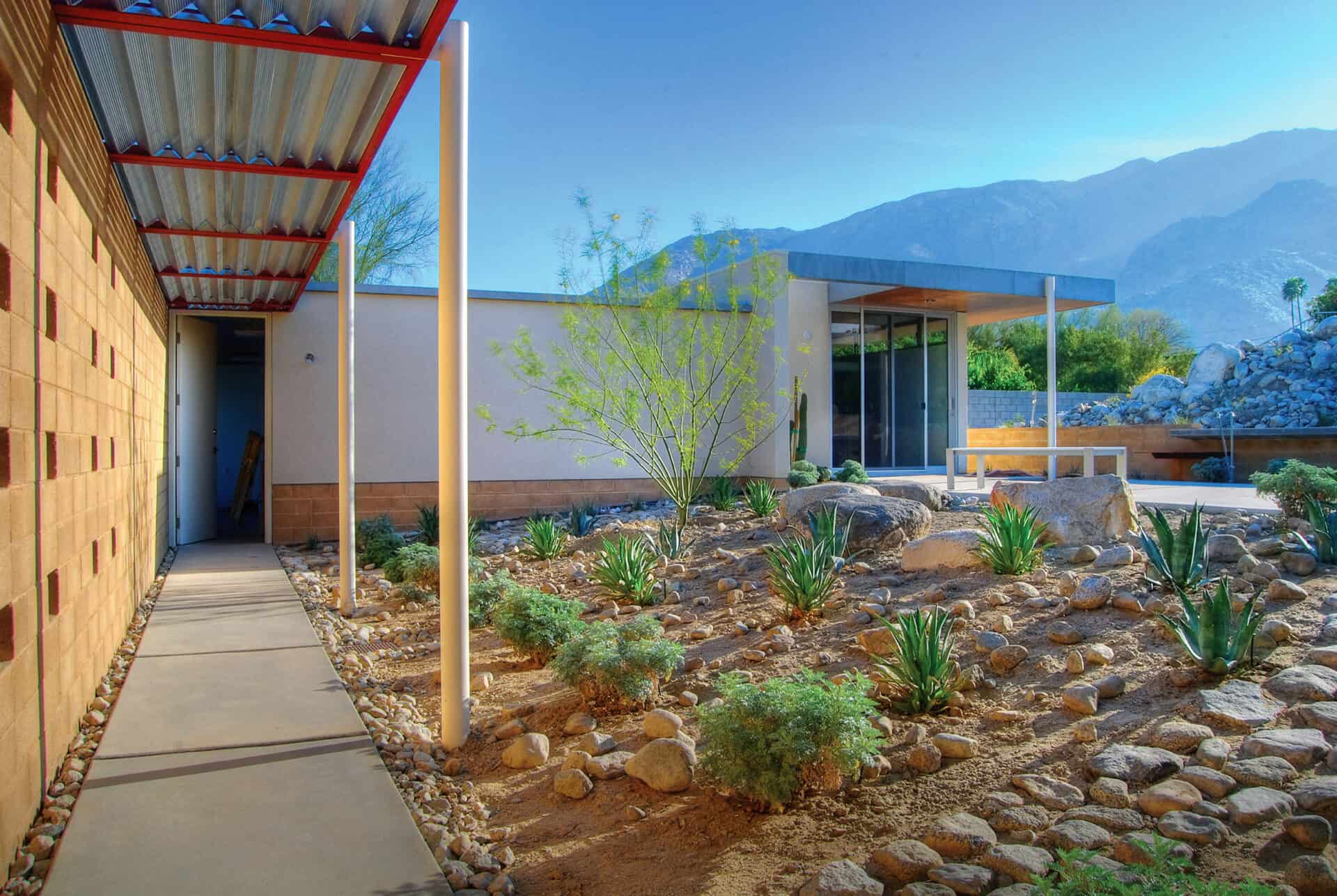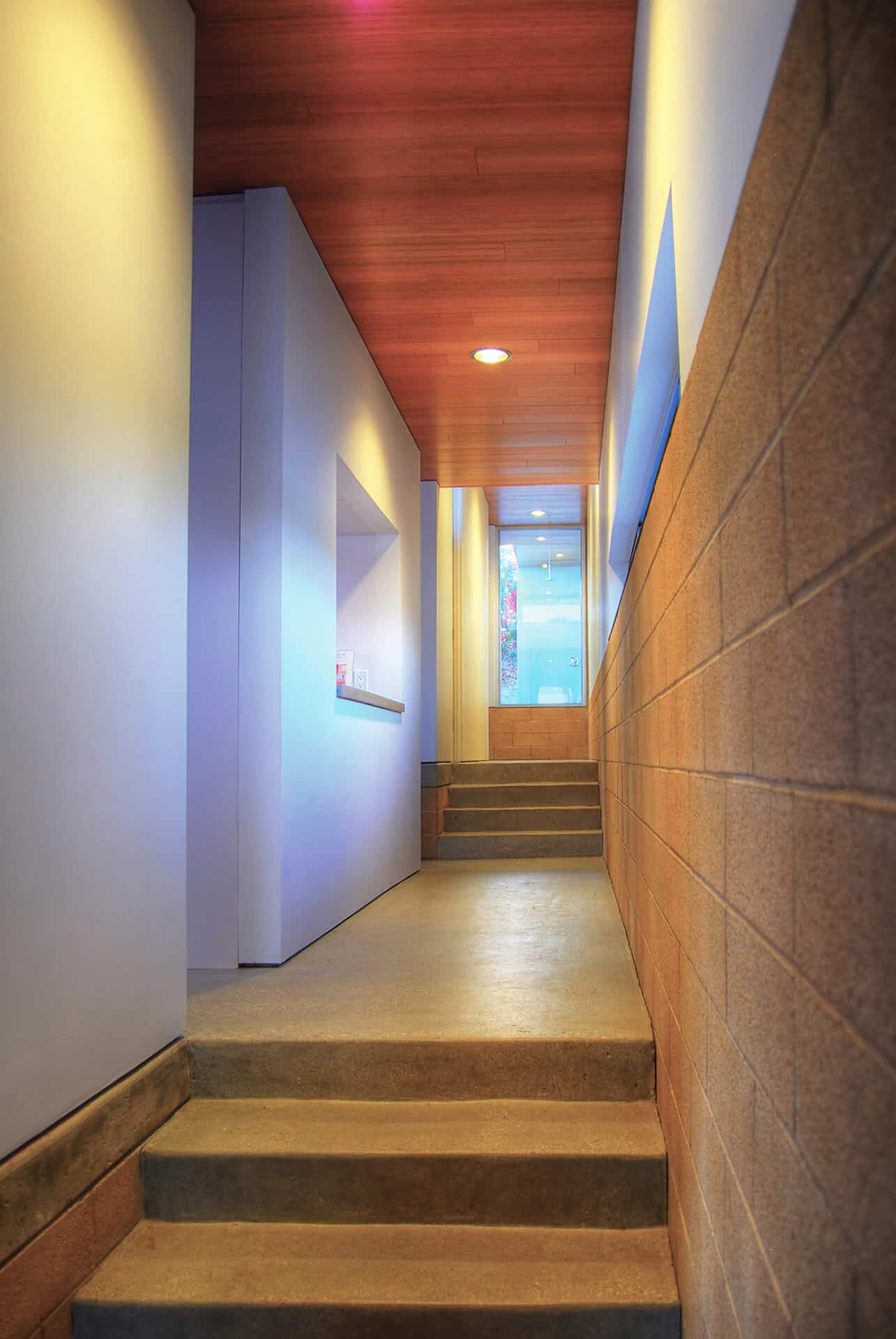is the Energy Efficient Solution.

O’DONNELL RESIDENCE, PALM SPRINGS, CA
ARCHITECT: O2 ARCHITECTURE
Why Masonry is the Energy Efficient Solution
Efficiency from creation to construction

Energy efficiency means a reduction of energy resources pulled from the power grid in order to build or maintain a completed structure. An energy-efficient building is one that is designed and built in order to use less energy than a conventional building of the same size.
Masonry has been used in building construction for centuries—long before the electrical grid existed. Masonry does not require any additional insulation, as the natural mass of the materials helps to regulate temperature and conserve energy. Additionally, masonry is fire-resistant and can provide a sound barrier against external noise pollution.
When it comes to sustainability, masonry has a significant advantage over other building materials. Masonry walls are made from natural materials such as stone, brick and concrete which can absorb heat during the day and release it at night. This helps to regulate temperatures inside the building, resulting in savings on energy costs.
Climate Control
Buildings constructed with masonry can require 18% – 70% less insulation than similar frame buildings, while still providing an equivalent level of energy efficient performance. This is one facet of efficiency, but let’s dive further into the other features of concrete masonry.
- Improved insulation: Masonry construction reduces heat loss through walls and roofs by up to 70%, helping you save on your energy bills.
- Passive heating and cooling: Masonry walls absorb and retain heat during colder months, allowing natural heat to filter in and passively regulate temperatures, reducing the need for air conditioning.
- Consistent regulation: Masonry has a high insulation value that helps maintain an even temperature throughout the building’s interior space.
- HVAC assist: Masonry walls retain their thermal efficiency year round and may help lower energy costs by minimizing the strain on air conditioners and furnaces.
- Solar assist: Masonry has the added advantage of reflecting sunlight away from buildings during summer months and attracting solar energy during winter months. This helps to create an environment where temperatures remain stable.
An Efficient Base to Build From
In addition to its thermal mass, masonry can be combined with other materials like insulation and air barriers to create an even more efficient design. For example, installing masonry on the exterior of a home can reduce heat loss and create an airtight seal that keeps conditioned air inside where it belongs.
Masonry also helps keep out moisture, which can damage a building over time and lead to higher energy costs due to the need for repairs. By using masonry, you can be sure your structure will remain sound for years to come without losing energy efficiency like other materials.
Efficient Production
Concrete masonry is produced by mixing cement, water, and aggregates such as sand, gravel, or crushed stone, and is less energy-intensive to produce than steel or wood. Concrete also has the highest embodied energy (carbon) in one ton of concrete when compared to steel and wood, and the inert nature of concrete masonry lends itself well to incorporating recycled materials as other constituents in the concrete mix.
O’DONNELL RESIDENCE, PALM SPRINGS, CA
ARCHITECT: O2 ARCHITECTURE